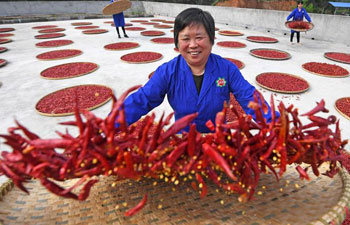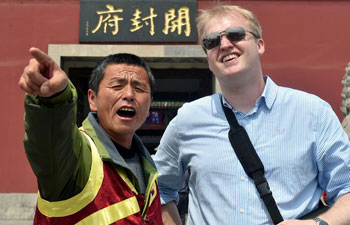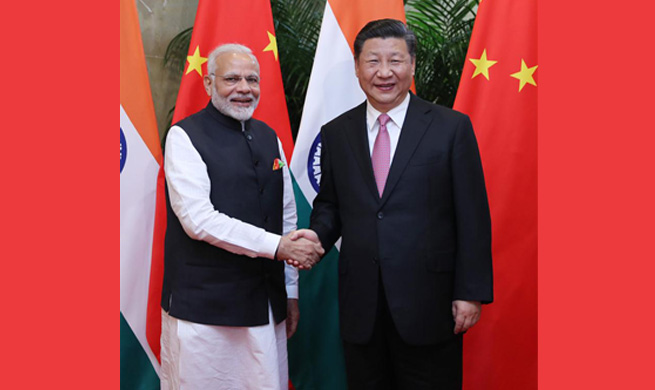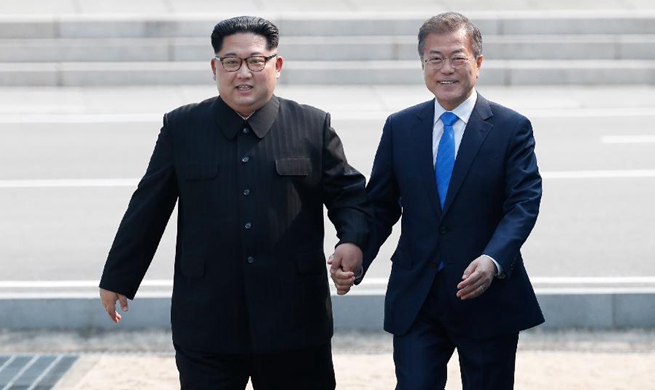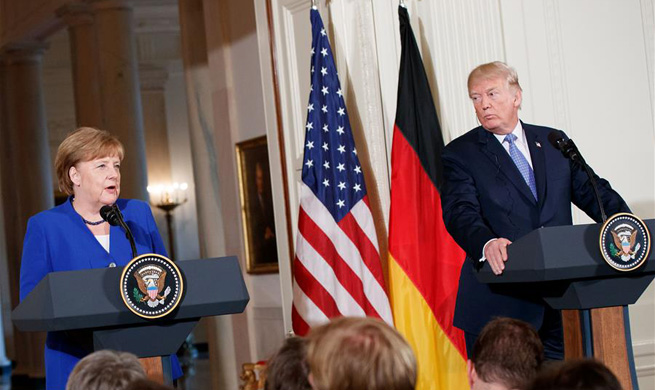by Mao Pengfei, Nguon Sovan
PHNOM PENH, April 28 (Xinhua) -- Chinese-educated Cambodians said that studying in China had given them chances to get high-positioned jobs, help develop the country, and contribute to promoting Sino-Cambodian ties after they had graduated.
Prak Phannara, president of the China Alumni of Cambodia, said that to date, more than 1,000 Cambodian students had graduated with bachelor's, master's and doctorate's degrees from various universities in China, mostly through the Chinese government scholarship.
"Currently, these graduates have held key positions in government ministries and institutions, and in private companies," he told Xinhua. "Studying in China, they got both their own majors and Chinese language proficiency."
Phannara is the holder of bachelor's degree and master's degree in international trade from the University of International Business and Economics in Beijing and is currently doing his doctorate in Administration Management at the Fudan University in Shanghai through the government scholarship.
He is currently a senior official at the Council of Ministers.
"The graduates from China have not only contributed to social and economic development in Cambodia, but also acted as a bridge connecting Cambodia and China," he said.
Phannara said he decided to pursue his doctorate in China because he wanted to better understand the Administration Management with Chinese characteristics.
"Also, I want to strengthen my knowledge and to use it to further help my institution," he said. "It is pretty sure that my education in China is very useful for my personal life and my current job."
He said the quality of major universities in China was internationally recognized thanks to qualified professors, good curriculums and good teaching methodology.
Tes Rukhaphal, who earned his master's degree in Public Administration from the Tsinghua University in Beijing in 2012 through the government scholarship, said he chose to study in China because he wanted to understand more about China's reform and opening up and the socialism with Chinese characteristics.
Rukhaphal is currently a deputy secretary general of the Labor Ministry's Committee for the Settlement of Strikes and Demonstrations. At this position, he help negotiate between the employees and employers to prevent strikes and demonstrations in the garment sector.
"About 90 percent of investors in the garment sector are from China, so my job is very important to promote labor relations between Cambodian employees and Chinese employers," he told Xinhua. "The Chinese-educated Cambodians are not only valuable human resources for national development, but also the long-term contributors to promoting Sino-Cambodian ties and cooperation."
He said studying in China had increased his knowledge and made him get better understanding about China's state administration.
Sharing his view on Chinese higher education quality and study environment, he said that professors were highly professional, with most of them graduating from the United States and European countries.
"The curriculums in Chinese universities are comparable to those in Western countries, and the teaching methodology is also good," he said.
Heng Panha, the holder of master's degree in Civil Engineering from the Beijing-based Tsinghua University in 2012, said he had studied in China for eight years through the government scholarship and that his master's degree had earned him a high-positioned job in a large construction company here.
He said he is currently the chief engineer at the Ly Chhuong Construction Co., Ltd, which has provided maintenance services to the Government House - both the Friendship Building and the Peace Palace - and developed infrastructure and buildings for the Tboung Khmum Provincial Hall in southeastern Cambodia.
"I decided to study this major in China because I saw high demands in civil engineers for construction projects in Cambodia," he said. "My career has contributed a lot to social and economic development through building roads, bridges, and buildings."
He said that when he was in Beijing, he was impressed by China's rapid development, modern and well-developed infrastructure, and security.
Ty Lico, who graduated with doctorate in political science from the Renmin University of China in 2010, said he decided to study in China because he wanted to learn about the socialism with Chinese characteristics.
"When I studied in China, I was impressed the most by Chinese culture, scenery, Chinese food and Chinese friends' warm hospitality" he said.
"After graduating, I use Chinese language every day. In my career, Chinese language helps me a lot. For example, I deal with Chinese friends or Chinese civil servants every day. In the future, I may rely on Chinese language to develop myself," said Lico, who is currently an official at the Ministry of Foreign Affairs and International Cooperation.
Va Sokken, the holder of master's degree from the Renmin University of China in 2013 in the major of Chinese Modern History, said Chinese culture and scenery impressed her the most when she studied in Beijing.
"I chose to study this major in China because I wanted to know more about the longstanding and good relations between Cambodia and China," said Sokken, who is currently also an official at the Ministry of Foreign Affairs and International Cooperation.





